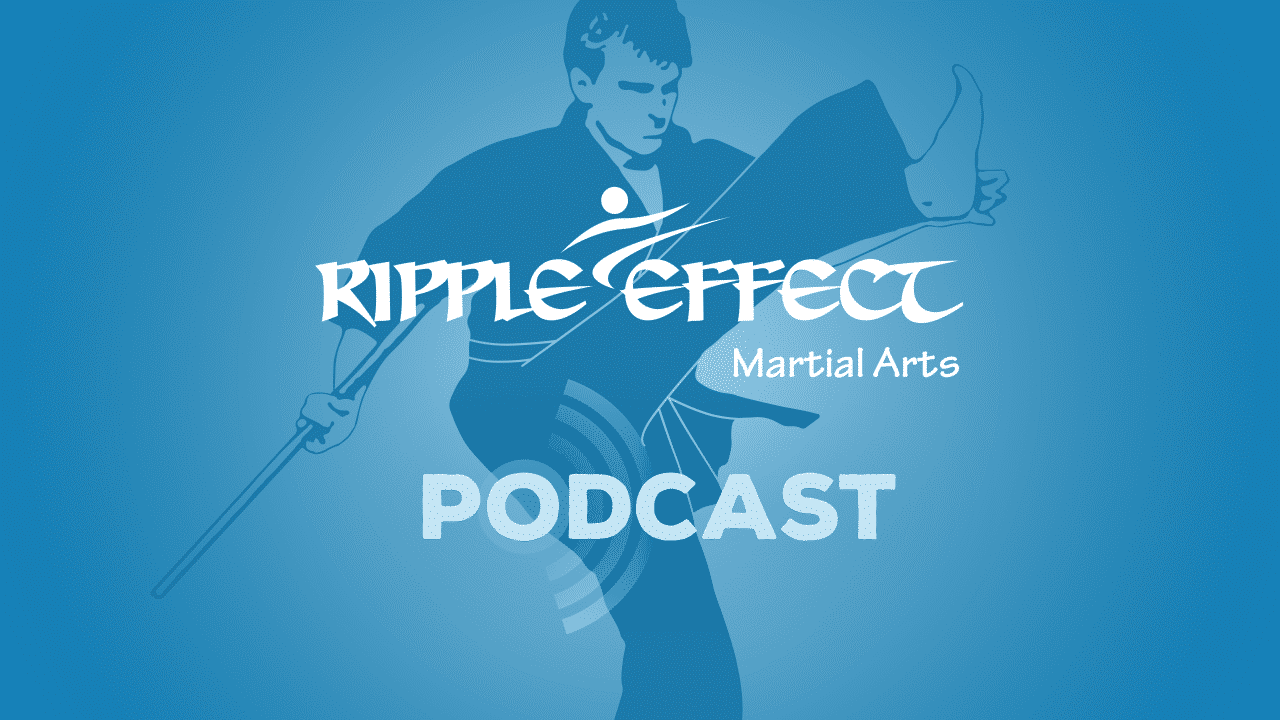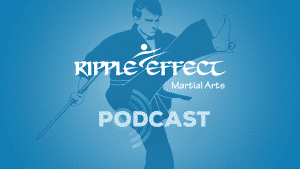How did you get your start in the martial arts?
I was around 4 years old, and I started at a local rec center in Windsor [Colorado]. I didn’t take to it right away. Fast forward 6 years, I was 10. My sister won a free month at Ripple Effect, and my martial arts journey really started there.
You’ve been instructing now for a few years. Have you encountered other kids who are hesitant?
There are some kids who are hesitant, and some who are ready to jump right out there with their siblings.
What’s an intro like? What do you teach in a karate first intro class?
You come in, tour the school, meet the karate instructors. We go over some of the rules and expectations of karate class for students, and we also teach some of the first kicks and punches.
Is that what you remember from your first intro as a white belt?
I remember thinking, I’m not going to do this. I’m just watching. Then we’re in the room, I see my mom and sister learning their moves. Then it’s toward the end of the class, I’m watching my mom and sister getting their white belts, and I decided, I am going to do this.
As a 10 year old, that’s a lot of pressure. Over the past 7 years since that first intro class, do you feel like martial arts has helped you deal with pressure?
Yes. I wasn’t the most athletic kid, and this is the main factor that got me to stick with it [martial arts]. Specifically, that I felt like [karate] was a sport I can do.
So were you good at karate right from the start?
[Laughs] No. But it was something I knew I could get better at. It felt like a sport that suited me.
Did that have to do with the instructors? Did you have role models?
Yes. Mr [Sean] Robinson was a mentor to me, then and now. He was fun, engaging. When I first met him at the intro lesson, it felt right. Like I was in the right place. I felt I was in the right place and having fun, but the instructors could also turn on the discipline when needed.
Did you feel like you needed that discipline? Like, I need someone to push me?
Once I got on the mat, and was doing karate with my family, I was a really quick learner. So I would always peek ahead at the next belt curriculum, try to learn it ahead of time. It all caught up to me in Prep Cycle [laughs].
What was your impression of Prep Cycle?
It was a change, for sure. I was used to going at my own pace with forms and combinations. Prep Cycle forced me to slow down, to work with a team of other kids and parents, and to focus more on technique.
What’s it like to teach kids, as an instructor? Do you envision kids as Black Belts even when they’re in the first lesson?
Yes, and they grow so fast. It feels like yesterday that I just taught a kid’s intro and now they’re moving up.
For a high-schooler, for a teenager, teaching is an incredible responsibility. Do you feel that?
I would always help my family learn [karate]. When I started teaching other kids, there was a little more pressure. I was trying to make sure I didn’t screw anything up [laughs.]
How does owning your mistakes come into play, being an instructor?
I used to take it a little harder when I messed up, while still making sure I stayed confident in front of students. My instruction has become stronger. I used to be a lot more nervous, but now I’m far more confident in my teaching.
I feel like there are kids who have great fear of making a mistake, and those kids that don’t have any fear at all. For you, martial arts made it possible to gain the confidence to present in front of a crowd, is that true?
Yes. I just finished a course in public speaking, I got an A on every one of my speeches. I just got up there and spoke.
On what topics?
I talked about the history of the Chevy Camero. My personal favorite era of the Camero is the late 70s/early 80s.
Describe what it’s like to talk in front of a group of 30 to 40 students and even more parents and onlookers.
We give these Mat Chats, like a little mini-speech that’s relevant to karate training. Usually what I do is kind of talk about the concept, tie it into my life, give an example, then ask the kids if they can give an example of how the concept applies to their lives.
For example flexibility, which was the Word of the Month for March. I’ll talk about how it applies to the physical aspect of what we do in taekwondo, the high kicks and everything.
But then I’ll talk about how we have to be flexible mentally, emotionally. Especially during COVID. We had to adapt and be flexible with all the changes, with masks, social distancing, training from home.
It challenges kids to think.
Yes. I’d get a ton of kids raising their hands.
What’s it like being on the competition team? Sparring against martial artists from other schools?
It’s not just taekwondo sparring. It’s kenpo, lots of other styles. It’s interesting, and I always know the match is going to be fun. I’ve gotten to know a lot of the competitors from other schools. There’s a lot of respect. We’ll talk on the sidelines, get together.
What’s your sparring style?
I like to fight with my hands. I do love a front leg round kick, since it’s so quick.
How does martial arts instruction help kids to come under control of their impulses?
It’s a balance. It has to do with being exciting enough to get kids into it, but staying grounded enough to bring the kids back into focus.
What would you say to someone who’s thinking about trying martial arts, for themselves or for their kids?
I would say just do it. It’s been a great experience for me. There will be some challenges on your way to Black Belt, but it’s so rewarding.

